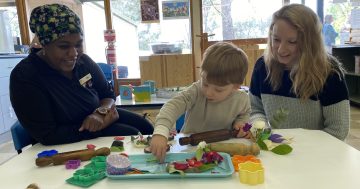
Homeschooling home learning. Photo: Kelly Sikkema.
School students are finding it difficult to study from home and are suffering from lockdown fatigue, according to one learning difficulties expert.
Canberra Learning & Development Centre director Marcelle Sternbeck-Rutter says children with learning difficulties or who suffer from neurodiversity – meaning they think and behave differently from their classmates – are even more disadvantaged.
During the ACT’s previous lockdown in 2020, the centre was inundated with parents wanting extra work for their children and people were generally coping quite well.
But now parents and students have become jaded and lethargic towards working and learning from home, Ms Sternbeck-Rutter told Region Media.
“There is definitely a lot of fatigue this time around,” she said. “Most of the kids we deal with have some kind of learning difficulty or are neurodiverse.
“A lot of kids who are on the spectrum, in particular, or who have more serious learning difficulties opted out of Zoom sessions because they found it overwhelming.”
Students in the ACT will spend the rest of term three learning from home, while the COVID-19 lockdown is in place until at least 17 September. Details about learning during term four will be finalised in the first week of school holidays.
Ms Sternbeck-Rutter says online teaching has progressed since last year with teachers using more individualised sessions to mentor students. However, face-to-face learning is still preferred by the majority of children she speaks to.
“Face-to-face is preferable and that is what most kids want. When I canvassed the kids, most of them wanted to go back to school because they miss their friends and interaction with their teachers.
“[But] some kids like the online Zoom sessions because they can focus better for the hour.
“Kids who are very digitally savvy also like the online learning aspect because it is more flexible, and the flexibility of hours is also good. One student told me that when she feels like having a nap, she can have a nap and then go back to her schoolwork.”
There are fears that children who struggle with technology are put at a further disadvantage. Most of the people who opted out of the organisation’s Zoom sessions were the ones who struggled with digital literacy.
“With one particular little boy, there was no online support offered [so] kids who have any kind of difficultly learning are struggling,” says Ms Sternbeck-Rutter.
“These are the kids who will get left further behind because they cannot keep up with the workload from school. Others do not know what work to do, and they have limited access to their teachers, so things are just not getting done.”





















